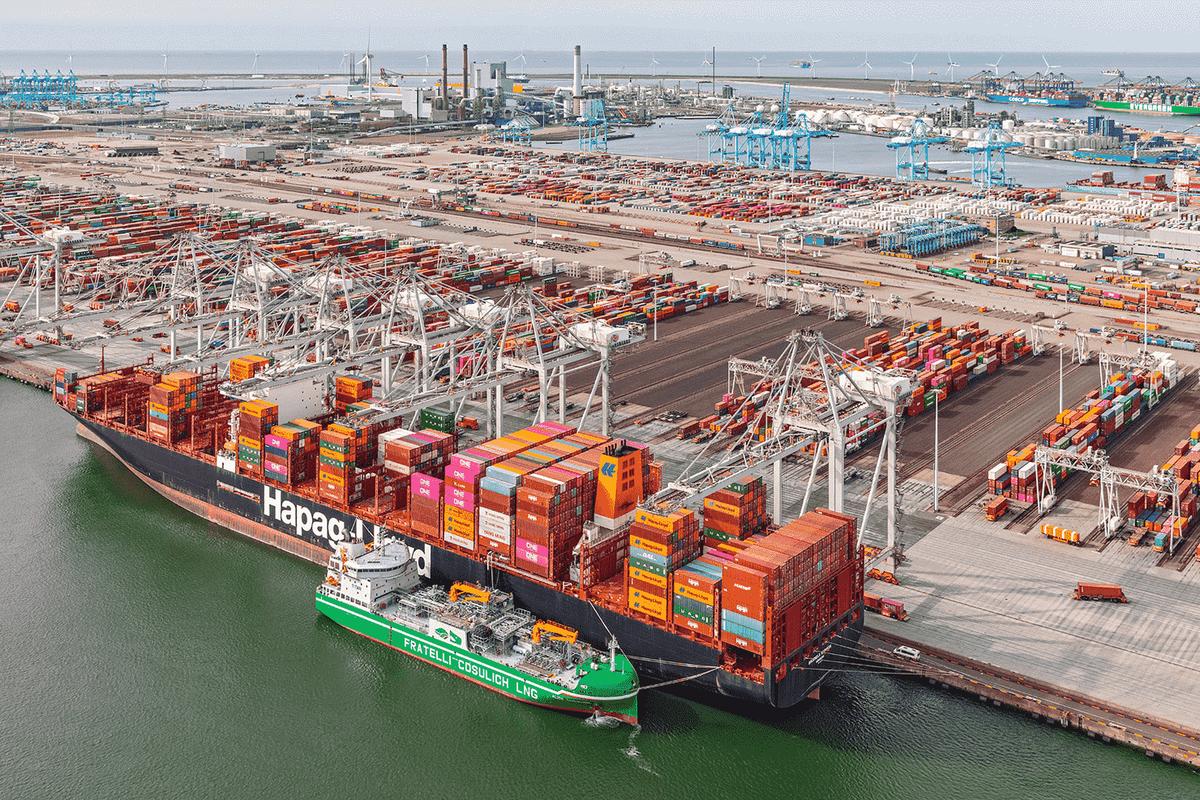Hapag-Lloyd ship bunkers big LBM stem in Rotterdam
LNG bunker supplier Titan delivered 2,200 mt of liquid biomethane (LBM) to Hapag-Lloyd’s container ship in the Port of Rotterdam.
 PHOTO: Ship-to-ship bunkering of Hapag-Lloyd's container ship, Brussels Express, in Rotterdam. Titan Clean Fuels
PHOTO: Ship-to-ship bunkering of Hapag-Lloyd's container ship, Brussels Express, in Rotterdam. Titan Clean Fuels
The ship-to-ship bunkering of Hapag-Lloyd’s container ship, Brussels Express, was carried out by its Titan’s bunker barge, Alice Cosulich.
“This pioneering deal demonstrates that bunkering large quantities of liquefied Biomethane is possible and scalable. However, there is still more progress required regarding the necessary infrastructure and the regulatory framework,” said Jan Christensen, senior director fuel purchasing at Hapag-Lloyd.
Titan produces LBM from bio-based feedstock such as organic waste, agricultural residue or manure and certified with International Sustainability Carbon Certification (ISCC), according to its website.
Biogas is produced through anaerobic digestion of bio-based feedstock. It must then be upgraded to bio-methane by removing CO2 before it can be used as a bunker fuel that is similar to fossil LNG. The bio-methane is also liquefied into LBM before direct use on vessels or as a blend with LNG.
LBM can function as a drop-in fuel in LNG, similar to the way biofuels can be blended with MGO or VLSFO. This means that vessels capable of running on LNG will not need modifications to run on pure LBM or LBM-LNG blends.
Titan has partnered with Dutch renewable energy firm STX Group “to liquify, store and deliver mass-balanced biomethane” in Zeebrugge, Belgium.
“LBM can be delivered in the form of physical molecules or ‘mass balanced’ whereby biomethane is injected into the gas network and transported to liquefaction plants and LNG terminals using the existing infrastructure through a system of mass balancing,” STX Group said.
The shipping industry's demand for LBM has been encouraging so far, according to Caspar Gooren, director of renewable fuels at Titan Clean Fuels.
“At Titan, while we’re fuel agnostic, we recognize the LNG pathway via LBM and renewable e-methane as a practical, sustainable and cost-effective route to net-zero shipping emissions and towards regulatory compliance for shipowners and operators,” Gooren added.
By Konica Bhatt
Please get in touch with comments or additional info to news@engine.online






